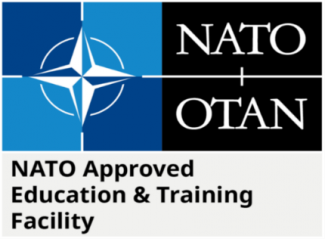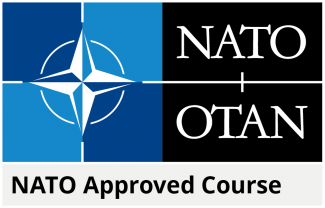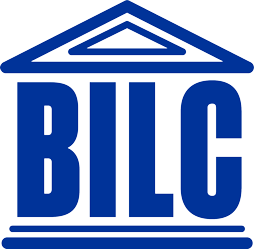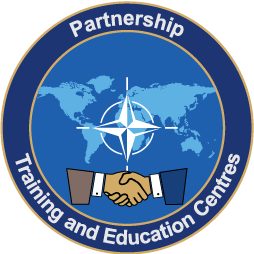
Partner Language Training Center Europe
Auftrag
„...flexible Sprachausbildung für US-Personal und gleichzeitig Englischunterricht und strategische Sprachkenntnisse für NATO-Verbündete und Partner in aller Welt anbieten.“
* Memo des stellvertretenden Verteidigungsministers Gordon England vom 1. Juni 2007, Betreff: Funktionstransfer des Fremdsprachenausbildungszentrums Europa
Vision
Die Anlaufstelle für fortgeschrittene Sprachausbildungspraktiken und Fachwissen im Verteidigungssektor für NATO-Verbündete und weltweite Partner.

Im Jahr 2016 wurde PLTCE vom NATO Allied Command Transformation (ACT) Joint Force Trainer als NATO Approved Education and Training Facility ausgezeichnet. PLTCE verdiente sich diese Anerkennung durch die Einhaltung der strengen Standards der NATO ACT-Qualitätssicherung und den erfolgreichen Abschluss des institutionellen Akkreditierungsprozesses der NATO. Das Ziel der NATO ACT-Qualitätssicherung besteht darin, standardisierte Qualitätsprozesse für die Lehrplanentwicklung, den Unterricht und den Schulbetrieb zu fördern, die gewährleisten, dass die für NATO-Anforderungen durchgeführten Kurse ein hohes Maß an Qualität aufweisen.

PLTCEs English Department Courses für Sprachlehrer und Prüfer sowie der Online-Schreibkurs für NATO-Stabsoffiziere wurden als NATO Approved zertifiziert. Diese Bezeichnung ist Teil des PLTCE-Akkreditierungsstatus und wird durch die Erfüllung der zusätzlichen Anforderungen der NATO-ACT-Qualitätssicherung erreicht.
Für weitere Informationen oder Fragen können Sie uns per E-Mail kontaktieren: PLTCE [at] marshallcenter.org (PLTCE[at]marshallcenter[dot]org)

Büro für internationale Sprachkoordinierung
Das Bureau for International Language Coordination (BILC) ist ein Zusammenschluss von Sprachschulen der NATO und von Partnerstaaten sowie von nationalen militärischen Sprachprüfungsstellen. Es ist das beratende Gremium der NATO für alle Fragen der Sprachausbildung und -prüfung. Als Verwalter der BILC-Richtlinien für die Sprachkenntnisse nach NATO STANAG 6001 ist BILC federführend bei den Standardisierungsbemühungen für alle STANAG 6001-Tests der NATO.
PLTCE spielt seit langem eine wichtige Rolle im BILC-Sekretariat. Darüber hinaus werden alle von der NATO genehmigten Kurse der Englischabteilung von PLTCE, die sich auf Sprachtests und -ausbildung konzentrieren, im Auftrag von BILC und den Standardisierungsbemühungen für NATO STANAG 6001 durchgeführt.
Für weitere Informationen oder Fragen, kontaktieren Sie uns per E-Mail: BILC [at] marshallcenter.org (BILC[at]marshallcenter[dot]org)

Ein partnerschaftliches Schulungs- und Ausbildungszentrum
Die Partnerschaftsausbildungszentren (Partnership Training and Education Centres - PTECs) sind ein weltweites Netz von Einrichtungen, die Kurse und akademische Seminare für ziviles und militärisches Personal aus NATO- und Partnerstaaten anbieten. Ihr Ziel ist es, die Professionalität des nationalen Personals zu verbessern, die internationale Interoperabilität der Truppen zu erhöhen und Bildungs- und Ausbildungsaktivitäten im Zusammenhang mit den Partnerschaftsprogrammen und der Politik der NATO durchzuführen.
PLTCE erhielt 2014 den PTEC-Status. Als PTEC führt PLTCE in Zusammenarbeit mit anderen Sprachschulen PTECS Kurse für die NATO und Partnerstaaten durch, um Ausbildungslösungen im Bereich des Sprachunterrichts und der Sprachprüfung anzubieten.